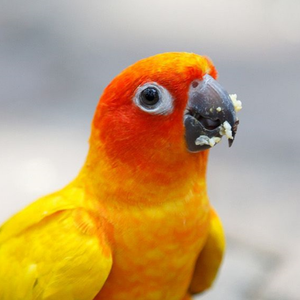31491038
Social 10: Unit 3 Flashcards
Description
Flashcards by Riley Babuik, updated more than 1 year ago
More
Less

|
Created by Riley Babuik
over 3 years ago
|
|
Resource summary
| Question | Answer |
| Economic Globalization | The way countries depend on each other for resources, an umbrella term for the way governments have become interdependent on each other's economies |
| Economic Nationalism/ Protectionism | When a country wants to develop their economy first before expanding to other countries. This can help local businesses greatly but raises prices for consumers because local production costs more. |
| Foreign Investment | A company investing/ taking ownership of a company in another country. Eg. Southeast Asian investment of Canadian lumber and oil industries |
| Free Trade | The movement of exports and imports without restrictions, quotas, or tariffs(taxes) |
| Anti-Globalization | The perspective that opposes globalization and believes global trade agreements are not made in the best of less developed countries and the environment |
| Subsidiaries | Companies controlled by a parent company |
| Outsourcing | When a company hires another company(sometimes from another country) to fulfill certain tasks for production. Eg. Technology companies outsourcing their customer services to Asia |
| Privatization/ Deregulation | When government-owned businesses are sold to private companies Eg. Alberta Liquor stores used to be government regulated but now are owned privately |
| Subsidy | Financial help(government loan or grant) given to industries Eg. Government support for COVID |
| Crown Corporation | Government-owned businesses in Canada Eg. Canada Post |
| Tariff | A tax on imports to increase the price and reduce competition with domestic products |
| Trade Liberalization | The process of removing trade barriers |
| Ethical/ Fairtrade | Trades between companies in more developed countries with producers from less developed countries where the producers are paid adequately |
| Consumerism | The promotion and protection of consumers, allowing them the freedom to control the economy. The desire for consumers to buy stuff to fill their wants and needs |
| Undeveloped/ Developed Nations | A developed nation has a higher quality of life, a working economy and more technological advancements than developing nations. |
| Sustainability / Ecological Footprint | The amount that human life affects the natural environment, the "footprint" left behind on the environment after every action a citizen takes. Sustainability is the balance between human development and environmental health, trying to find a situation where both can prosper. Eg. "Carbon neutral" means to offset the carbon emissions produced when doing something by donating or supporting a service that helps the environment |
| Agribusiness | Large scale agricultural business or groups of smaller family farms put together, such as Hutterite colonies |
| Supply-side economics/ the “Trickle-Down Effect”/ neo-conservatism (Friedman, Hayek) | Supply-side economics is when taxes are lowered for the highest wealth class to allow them more money to reinvest in the economy. This would then "trickle" down into the lower classes of the economy and allow economic recovery. This is the ideology of Friedrich Hayek. |
| Demand-side economics - Keynesian Economics | Demand-side economics is allowing more government spending to invest in the economy and allow the lower and middle classes to recover. This is currently what is happening during COVID, the government is created programs to allow businesses and individuals to stay afloat during the pandemic. This may also involve raising taxes for higher wealth classes. |
| Social programs (‘universality’ of social programs) | Goods and services provided by governments and funded by government taxes. These services are available to everyone for free and sometimes referred to as "universal". In Canada, healthcare, public schooling, public libraries, police stations and fire departments are all social programs and funded by the government. |
| The Gold Standard | Created in the Bretton Woods Agreement that stated that all printed money must be convertible to gold in that country. This means that a country's gold reserve dictates how much money can be printed. For example, if a country only has a billion dollars worth of gold, only a billion dollars of printed money(currency) can be printed. Basically, a country's gold reserve determines how much that country is worth. This made it hard for governments to deal with crises and needing more money, so it was no longer enacted in the 1970s. |
| Floating/ Fixed Exchange Rates | A fixed exchange rate is when a currency's value is set by the government. A floating exchange rate is when a currency's value is determined by what it's worth on the foreign market, basically determined by how many countries are investing and buying it |
| Equalization Payments | A tax taken by Canada's federal government from each province that is then redistributed to equally distribute wealth among the provinces. Basically, the government takes money from more wealthy provinces and distributes it to less wealthy provinces |
| Self Determination/ Sovereignty | A country's independence and ability to make decisions for themselves. Eg. Because Canada has subsidized industries(such as lumber and dairy) the United States regulated the trading in those industries. This was an example of infringing on Canada's sovereignty. |
| Stewardship | Environmental responsibilities |
Want to create your own Flashcards for free with GoConqr? Learn more.
